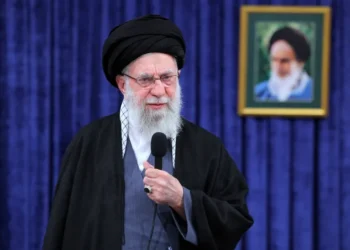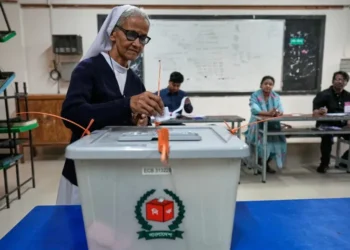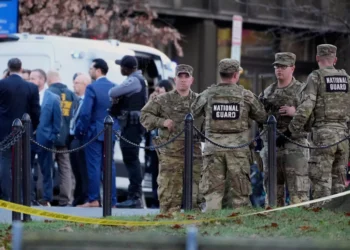Germany Faces Cybersecurity Threats from Russia and China, Says Chancellor Scholz
Germany’s cybersecurity and critical infrastructure are under “severe threat” from foreign adversaries, primarily Russia and occasionally China, Chancellor Olaf Scholz warned during a speech in the Bundestag on Wednesday.
Cyber Threats from Russia and China
“The main source of cyberattacks affecting our security is Russia,” Scholz stated, adding, “and attacks also come from China from time to time, and that cannot be ignored.”
Scholz’s comments come amid heightened concerns about global cybersecurity. On Tuesday, the United States reported an ongoing major cyberattack by Chinese hackers targeting global telecommunications providers. Meanwhile, in the Baltic Sea, damage to two undersea fiber-optic cables has fueled suspicions of sabotage.
In another alarming incident, a Russian ship allegedly fired signal ammunition at a Bundeswehr (German military) helicopter over the Baltic Sea, according to a report by the German news agency DPA.

Call to Strengthen Security
Chancellor Scholz emphasized the need for significant efforts to defend against such threats. “Our security authorities must work tirelessly to investigate these attacks and prevent them from recurring,” he said when addressing lawmakers about the recent incidents.
Warnings About NATO Security
Last week, the head of Germany’s foreign intelligence service raised concerns about Russia’s intentions toward NATO. Some Russian Defense Ministry officials reportedly question whether NATO members would uphold the alliance’s mutual defense commitment under Article 5 of the NATO treaty.
Moscow could potentially exploit this by staging a limited intervention under the pretense of protecting Russian minorities within NATO territory, testing the alliance’s resolve and potentially undermining its unity.
On Peace Talks with Russia
When asked about peace negotiations between Russia and Ukraine, Scholz reiterated that any decisions must include Ukraine’s input. “These decisions cannot be made over Ukraine’s head,” Scholz said, emphasizing that Kyiv should determine its course of action “in consultation with its closest friends and allies.”
Reflecting on his direct diplomatic efforts, which included a one-hour phone conversation with Russian President Vladimir Putin, Scholz noted, “The Russian President has shown no willingness to move toward peace.”
Germany’s increasing vulnerability to cyberattacks and geopolitical tensions underscores the urgency for robust defenses and diplomatic vigilance in safeguarding both national and international security.
This article was rewritten by JournosNews.com based on verified reporting from trusted sources. The content has been independently reviewed, fact-checked, and edited for accuracy, neutrality, tone, and global readability in accordance with Google News and AdSense standards.
All opinions, quotes, or statements from contributors, experts, or sourced organizations do not necessarily reflect the views of JournosNews.com. JournosNews.com maintains full editorial independence from any external funders, sponsors, or organizations.
Stay informed with JournosNews.com — your trusted source for verified global reporting and in-depth analysis. Follow us on Google News, BlueSky, and X for real-time updates.














